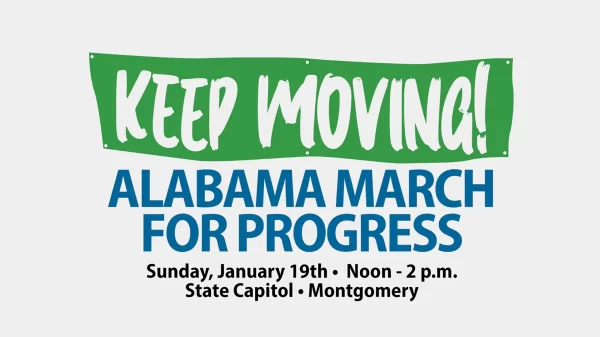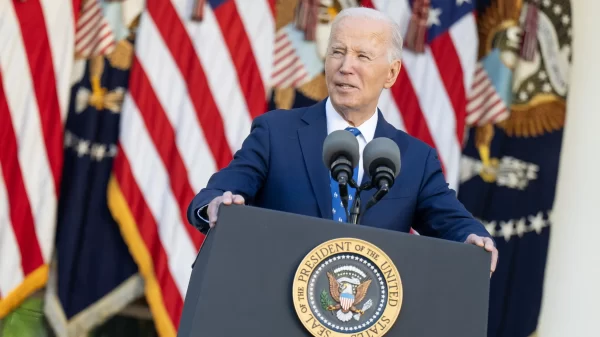|
Getting your Trinity Audio player ready...
|
For the first time in the Southern Poverty Law Center’s (SPLC) 33 years of designating right-wing organizations as hate groups, a defamation lawsuit against them will move forward to discovery.
On Monday, the Georgia-based Dustin Inman Society (DIS) announced it will retain additional counsel in its defamation lawsuit against the Southern Poverty Law Center. Defamation attorney Todd McMurtry, a partner in Hemmer DeFrank Wessels, will join their legal team as will Liberty Counsel, a non-profit focused on protecting Christian values through strategic litigation. DIS’s original counsel, James McKoon, founder of McKoon, Williams, Atchley & Stulce, PLLC, will remain.
SPLC calls DIC an “anti-immigrant hate group” and says the organization “focuses on vilifying all immigrants.” DIS consistently emphasizes its opposition to the criminal aspect of illegal immigration, not immigration as a whole though they strongly oppose amnesty. The DIS website prominently reads “Illegal aliens are not ‘immigrants.’ and says their coalition is diverse and includes immigrants. SPLC says DIS “supports efforts to make the lives of immigrants so hard that they leave on their own.”
“It came as quite a surprise to the proud immigrants on our diverse board of advisors and our immigrant supporters to learn that the SPLC uses their vast wealth and influence with the media to convince the world that we somehow hate immigrants,” D.A. King, founder and president of DIS, said. “We are proud to be actively pro-enforcement on immigration. The record shows that the SPLC takes an anti-enforcement position on the issue. It seems they hate their political opposition and are willing to prove it.”
King and DIS allege the “anti-immigrant hate group” classification is false and defamatory. They argue it is false because DIS opposes illegal immigration, and under strict interpretation of federal definitions, an immigrant has a lawful right to be in the U.S. They argue the SPLC demonstrated malice through unreasonable willful ignorance of DIS and King’s positions and factual history, such as claiming the group was founded in 2003. For example, the SPLC profile states King founded the group in 2003.
According to King, he formed the DIS in 2005, naming it after a sixteen-year-old killed in a 2000 car accident in Gilmer County, Georgia caused by Mexican national Gonzalez Gonzalo Harrell. A grand jury indicted Harrell of homicide by vehicle, but he fled during medical treatment and has been at-large for decades. In 2019, the FBI still listed Harrell as a fugitive. DIS claimed Harrell obtained a valid North Carolina drivers license using his Mexican birth certificate.
“The SPLC’s stated motivation is to ‘destroy’ groups with which it disagrees, and it accomplishes this objective by falsely labeling nonviolent organizations as ‘hate groups.’ This label is false and those who rely upon it must stop,” Liberty Counsel Founder and Chairman Mat Staver said.
SPLC’s current profile of DIS heavily relies on direct quotes from King. One said to be from a Newton County, Georgia, Republican Party meeting in April 2007 where King said undocumented immigrants are “not here to mow your lawn — they’re here to blow up your buildings and kill your children, and you, and me.”
McMurty is known nationally for his defamation suits against CNN and The Washington Post on behalf of Nicholas Sandmann, the Covington Catholic High School student who was confronted by Native American Nathan Phillips and a group of Black Hebrew Israelites after attending the 2019 March For Life in Washington D.C. After CNN and The Washington Post published out-of-context video of the incident showing Sandmann wearing a MAGA hat and smiling in front of Phillips, former CNN host Reza Aslan tweeted a suggestion that the then-17-year-old should be punched. Others suggested Sandman should be doxxed and directly called for followers to “punch him in the nuts.”
In April, W. Keith Watkins, a federal judge for the middle district of Alabama, ruled against SPLC’s motion to dismiss DIS’s defamation suit, permitting it to move forward to discovery. In court documents, he found the DIS to have a sufficiently case for the defamation requirements of falsity and malice in the language of “anti-immigrant hate group” and “vilifies all immigrants.” SPLC argues those statements are protected speech under the first amendment, but Watkins wrote it is not since SPLC presented the statements as factual conclusions of rigorous research, not opinion.
SPLC has been sued several times for defamation, but cases have always settled or been dismissed. One notable case was a $3.375 million settlement and formal apology to Islamic reformer Maajid Nawaz and his organization, the Quilliam Foundation. SPLC included Nawaz on a 2016 list of “anti-Muslim extremists” and accused him of “savaging Islam.”
King filed a very similar defamation suit in February 2020, but the Fifteenth Circuit Court of Alabama dismissed without prejudice, finding that King did not have sufficient allegation of malice on the part of SPLC. This second lawsuit, filed in April 2022, includes claims against SPLC reports from 2021 and updated arguments for malice.
On June 22, SPLC added two Ballard Spahr attorneys to their team. Maxwell S. Mishkin has successfully defended the Associated Press and The Electronic Frontier Foundation against libel claims. Chad R. Bowman worked on the same Associated Press case as well as successful defenses for Gawker Media and The New Yorker.





















































